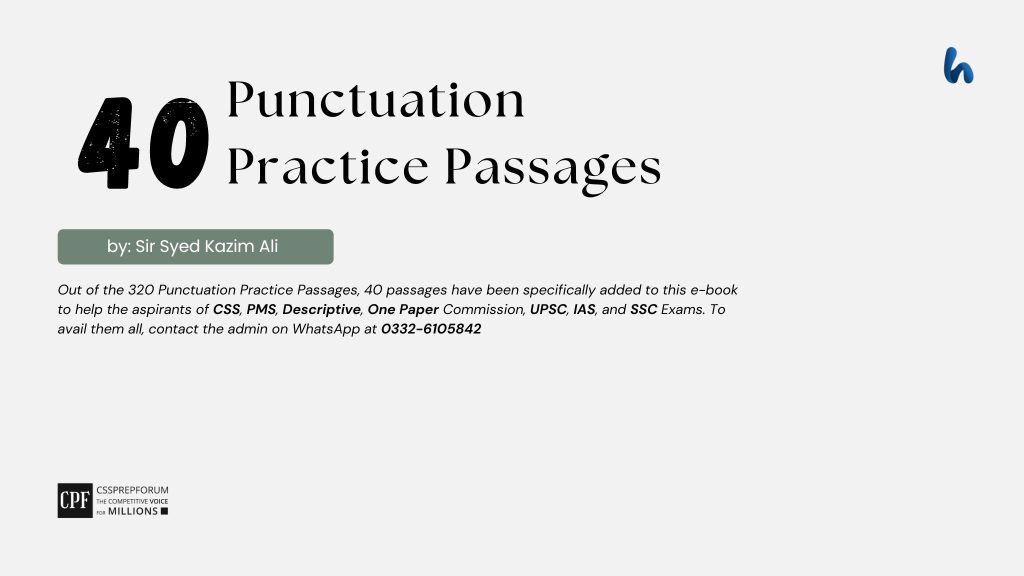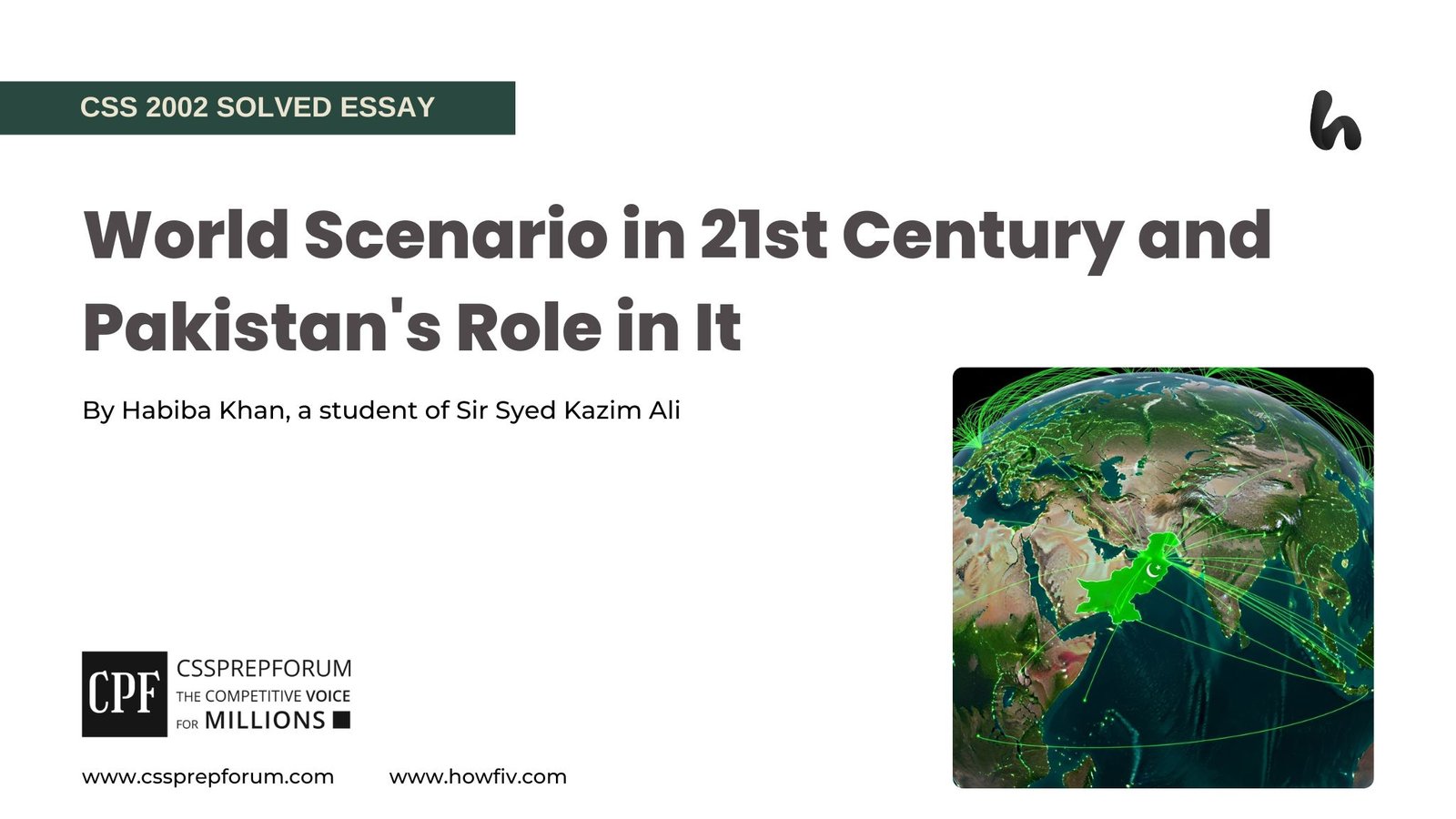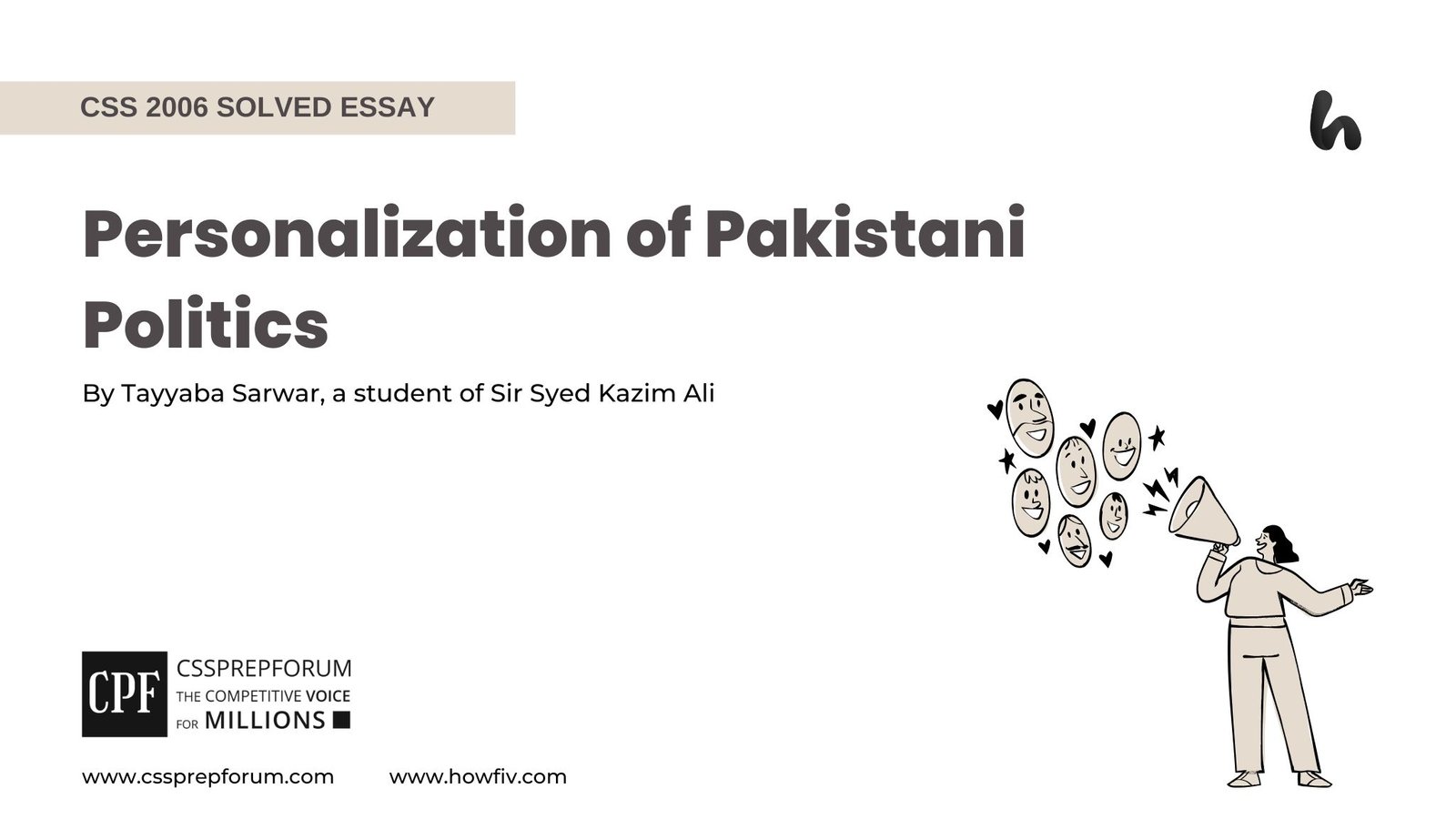This article comprehensively overviews the most important climate change and global warming terminologies crucial for CSS and PMS aspirants. Learning to write them will enable aspirants to navigate complex political concepts effectively.

Learning to write subject terminologies is always essential for competitive exam students, especially CSS and PMS. This practice gives aspirants a deeper understanding of complex concepts, ultimately helping them articulate their thoughts clearly. Learning to write these terms appropriately not only enhances comprehension but also equips aspirants to engage effectively with exam essays. For example, in fields like political economy, acquaintance with terms such as “globalization” and “trade barriers” helps aspirants confidently analyze and debate relevant issues. After learning these terminologies, aspirants can tackle exam questions more adeptly because they can apply these terms contextually, demonstrating their knowledge and critical thinking skills. Therefore, learning subject-specific terminology is not just about learning words or vocabulary; it’s all about improving exam scores.
I have compiled the following terminologies from various reputable sources: dictionaries, websites, books, and magazines. This compilation is intended to aid my students in enhancing their vocabulary and effectively articulating their thoughts in essays, whether for compulsory or optional subjects.
Important Climate Change and Global Warming Terminologies
| Climate Change |
| A long-term alteration in Earth’s climate. |
| Global Warming |
| The increase in Earth’s average temperature. |
| Greenhouse Effect |
| The warming of Earth’s atmosphere due to the trapping of heat by greenhouse gases. |
| Greenhouse Gases |
| Gases that trap heat in the atmosphere, such as carbon dioxide, methane, and nitrous oxide. |
| Anthropogenic Climate Change |
| Climate change caused by human activities. |
| Fossil Fuels |
| Coal, oil, and natural gas, which release carbon dioxide when burned. |
| Deforestation |
| The clearing of forests, which reduces carbon absorption. |
| Industrialization |
| The development of industries, which emits greenhouse gases. |
| Overpopulation |
| The excessive growth of the human population, which increases demand for resources and emissions. |
| Agricultural Activities |
| The release of greenhouse gases from agriculture, such as methane from livestock. |
| Rising Sea Levels |
| The increase in the average height of the oceans. |
| Extreme Weather Events |
| More frequent and severe weather events, such as hurricanes, floods, and droughts. |
| Ocean Acidification |
| The decrease in pH of the ocean due to increased carbon dioxide levels. |
| Biodiversity Loss |
| The loss of species and ecosystems due to climate change. |
| Food Insecurity |
| The inability to access enough food to meet nutritional needs. |
| Renewable Energy |
| Energy sources that are naturally replenished, such as solar, wind, and hydro power. |
| Energy Efficiency |
| The use of energy in a way that reduces waste. |
| Carbon Capture and Storage (CCS) |
| A technology that captures carbon dioxide emissions and stores them underground. |
| Reforestation |
| The planting of trees to offset carbon emissions. |
| Sustainable Agriculture |
| Agricultural practices that protect the environment and promote biodiversity. |
| Climate-Smart Agriculture |
| Agricultural practices that are resilient to climate change. |
| Infrastructure Adaptation |
| Building infrastructure that is resilient to climate change, such as seawalls and flood control systems. |
| Disaster Risk Reduction |
| Measures to reduce the impact of natural disasters. |
| Early Warning Systems |
| Systems that provide advance warning of extreme weather events. |
| Climate Migration |
| The movement of people due to climate change. |
| United Nations Framework Convention on Climate Change (UNFCCC) |
| An international treaty that aims to stabilize greenhouse gas concentrations in the atmosphere. |
| Kyoto Protocol |
| An international agreement that sets binding targets for reducing greenhouse gas emissions. |
| Paris Agreement |
| An international agreement that aims to limit global warming to well below 2 degrees Celsius. |
| Intergovernmental Panel on Climate Change (IPCC) |
| An international body that assesses the science related to climate change. |
| Sustainable Development Goals (SDGs) |
| A set of goals adopted by the United Nations to achieve sustainable development by 2030. |
| Radiative Forcing |
| The change in net energy balance of the Earth’s climate system. |
| Climate Sensitivity |
| The change in global average surface temperature in response to a given change in radiative forcing. |
| Climate Modeling |
| The use of computer models to simulate the Earth’s climate system. |

| Climate Feedback Loops |
| Processes that amplify or dampen the effects of climate change. |
| Carbon Cycle |
| The natural cycle of carbon between the atmosphere, oceans, land, and living organisms. |
| Electric Vehicles |
| Vehicles powered by electricity rather than fossil fuels. |
| Desertification |
| The degradation of land, leading to desert-like conditions. |
| Electric Vehicles |
| Vehicles powered by electricity rather than fossil fuels. |
| Sustainable Transportation |
| Transportation that reduces greenhouse gas emissions. |
| Radiative Forcing |
| The change in net energy balance of the Earth’s climate system. |
| Coral Bleaching |
| The loss of color and death of coral reefs due to increased ocean temperatures. |
| Permafrost Melting |
| The thawing of permanently frozen ground. |
| Agricultural Impacts |
| Reduced crop yields, increased pest infestations, and water shortages. |
| Health Impacts |
| Increased heat-related illnesses, respiratory problems, and waterborne diseases. |
| Economic Impacts |
| Loss of property, jobs, and livelihoods due to climate change. |
| Geothermal Energy |
| The use of heat from the Earth’s interior to generate electricity. |
| Biofuels |
| Fuels derived from plant materials. |
| Energy-Efficient Appliances |
| Appliances that use less energy to operate. |
| Green Buildings |
| Buildings that are designed to be environmentally friendly. |
| Climate-Smart Agriculture |
| Agricultural practices that are resilient to climate change. |
| Montreal Protocol |
| An international agreement that regulates the production and consumption of ozone-depleting substances. |
| Copenhagen Accord |
| A non-binding agreement that set goals for reducing greenhouse gas emissions. |
| Cancun Agreements |
| A set of decisions adopted by the UNFCCC to strengthen the global response to climate change. |
| Durban Platform |
| A framework for negotiating a new international agreement on climate change. |
| Warsaw International Mechanism for Loss and Damage |
| A mechanism to help developing countries cope with the impacts of climate change. |
| Albedo |
| The reflectivity of a surface. |
| Ocean-Atmosphere Interactions |
| The exchange of energy, moisture, and momentum between the ocean and atmosphere. |
| El Niño-Southern Oscillation (ENSO) |
| A natural climate phenomenon that affects weather patterns around the world. |
| Thermohaline Circulation |
| A large-scale ocean current that helps to regulate the Earth’s climate. |
| Greenhouse Gas Inventory |
| A record of the emissions and removals of greenhouse gases. |
| Afforestation |
| The planting of trees to offset carbon emissions. |
| Water Conservation |
| Measures to reduce water consumption. |
| Coastal Protection |
| Measures to protect coastal areas from sea level rise. |
| Health Adaptation |
| Measures to adapt healthcare systems to the impacts of climate change. |
| Community Resilience |
| Building the capacity of communities to cope with climate change. |
| Climate-Proofing |
| Making infrastructure and other assets resilient to climate change. |
Click on Any to Start Reading



FAQs About Sir Syed Kazim Ali

CSS Solved Past Papers’ Essays
Looking for the last ten years of CSS and PMS Solved Essays and want to know how Sir Kazim’s students write and score the highest marks in the essays’ papers? Then, click on the CSS Solved Essays to start reading them.
CSS Solved Essays
CSS Solved General Science & Ability Past Papers
Want to read the last ten years’ General Science & Ability Solved Past Papers to learn how to attempt them and to score high? Let’s click on the link below to read them all freely. All past papers have been solved by Miss Iqra Ali & Dr Nishat Baloch, Pakistan’s top CSS GSA coach having the highest score of their students. General Science & Ability Solved Past Papers












